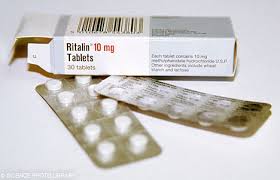Are Stimulants for Depression Safe Treatments?
There has been much debate in the medical community about whether stimulants or psychostimulants like Adderall are a safe and effective treatment for depressive disorders. Depression is a global health concern that affects one in every 20 Americans over the age of 12, according to the Centers for Disease Control and Prevention.
Most medications used to treat this illness come with side effects, this includes stimulants. Are stimulants safe, though? There is no easy answer because there are many factors involved in the treatment of a complex mental illness like depression. To understand stimulant use, you have to know more about the disease.
What is Depression?

Depression that interferes with daily life should be treated.
Depression is not just the occasional bout of the blues. There are varying classifications of depression to consider.
Major depression is episodic and can occur just once or a number of times. A bout of major depression interferes with your daily life. You may not be able to sleep, eat or work. Some individuals suffering a major depressive episode will refuse to get out of bed or try to find comfort in binge eating.
Persistent depressive disorder lasts for at least two years. This person may have ups and downs but feel the blues most days. There may be bouts of major depression mixed into the cycle, as well.
Psychotic depression includes delusions or hallucinations. This person may be paranoid or be obsessed with conspiracies.
Postpartum depression is due to the physical and hormonal changes that occur after childbirth. About 10 to 15 percent of new moms experience postpartum depression.
Seasonal affective disorder, or SAD, is a reaction to the changing season, and more specifically, the reduction of natural light that comes with winter.
Symptoms of Depression
The diagnostic criteria for depression are based on guidelines set forth in the Diagnostic and Statistical Manual of Mental Disorders produced by the American Psychiatric Association. A patient must exhibit five or more symptoms.
- Depressed mood – sadness, feeling empty
- Diminished interest
- Significant weight loss or gain
- Restlessness or slowed behavior
- Fatigue
- Feelings of self doubt or worthlessness
- Difficulty making decisions
- Recurrent thoughts of death or suicide
Drug Therapy for Depression
Medication is often used to treat severe cases of depression. The use of stimulants, however, is reserved for resistant cases. A more common approach is to prescribe an antidepressant, preferably one with fewer side effects.
Selective serotonin reuptake inhibitors (SSRIs) – These medications are generally considered safer for those with depression. Brand names like Prozac, Paxil and Zoloft are popular choices.
Serotonin and norepinephrine reuptake inhibitors (SNRIs) – Cymbalta, Effexor and Pristiqu are examples of SNRIs
Stimulants and Depression
Stimulants may work to counteract some of the symptoms of depression. Often the use of stimulants is reserved for treatment-resistant cases of depression or to treat a comorbid condition such as ADHD.
The only real benefit to using a stimulant for depression is the fast response. Most antidepressant drugs take time to work, days or weeks, but a stimulant works quickly. People feel a mood boost right away. The stimulants improve concentration and memory, as well.
Stimulant Addiction
The downside to using stimulants to treat depression is the potential for addiction. A person prone to addiction may like that mood and energy boost that comes with a stimulant, so much that they have trouble getting that same effect any other way.
The addiction factor creates a vicious cycle that is very difficult to break for those who take stimulants. Depression leads to stimulant use, which leads to emporia that alleviates the sadness. The sudden loss of the stimulant that comes with addiction treatment leads to a more intense depression.
As with most drugs that can lead to addiction, there is a tolerance concern with stimulants, as well. For the first couple of weeks, the stimulant may help relieve the depression, but over time, it will take more of the drug to get the same effect.
The side effects of stimulant use include:
- Sleepiness
- Reduced libido
- Anxiety
- Sudden drop in energy
Stimulants are not a standard treatment for depressive disorders, often because they are not the best option available. They are sometimes used in combination with other treatments or to manage another condition. They may also be a choice for someone who is resistant to other depression treatments.
Taking high doses of a stimulant can raise the blood pressure to a dangerous level and cause an irregular heartbeat. In some cases, stimulant use may lead to cardiac arrest and death. The National Institute on Drug Abuse lists prescription stimulants are one of the most commonly abused drugs. A stimulant can mask the effect of other drugs, like alcohol or heroin, and lead to overdose, as well.
Are stimulants safe to use to treat depression? The real danger in using stimulants to treat depression comes in the risk of addiction. A person who becomes addicted to a stimulant will require medical intervention to get clean without falling into the pit of depression again.



